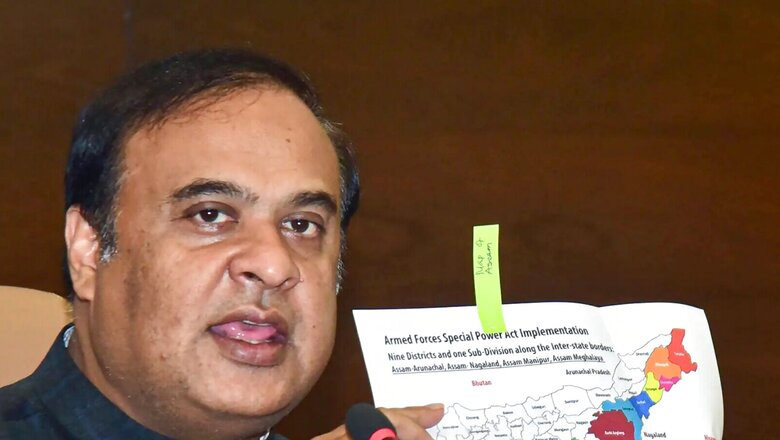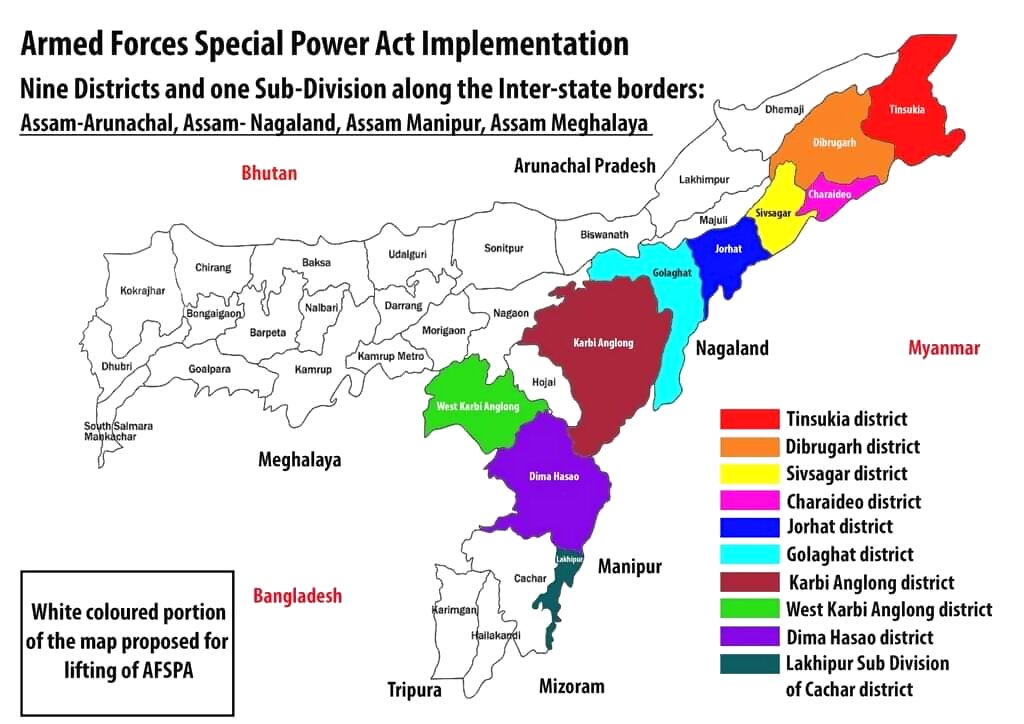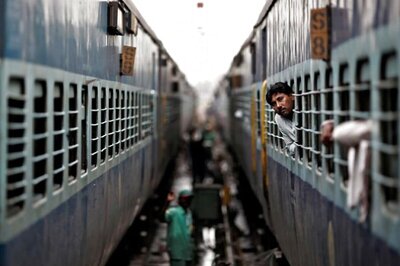
views
The Armed Forces (Special Powers) Act or AFSPA – like many other controversial laws – is of a colonial origin. It was first enacted as an ordinance in the backdrop of Quit India Movement launched by Mahatma Gandhi in 1942.
In Independent India, AFSPA was first enacted to deal with the Naga insurgency in the Assam region in 1958. The Armed Forces (Assam and Manipur) Special Powers Ordinance, 1958 was promulgated by then President Dr Rajendra Prasad on May 22, 1958. For implementation of AFSPA, as per Section 3, the area is required to be declared a Disturbed Area.
Section (4) of AFSPA gives special powers to Army officers in disturbed areas to shoot (even if it kills) any individual who violates law/or is suspected to violate law (this includes assembly of five or more people, carrying of weapons) etc. The only condition is that the officer has to give a warning before opening fire. Security forces can arrest anybody even without a warrant, and carry out searches without consent. Once a person is taken into custody, he/she has to be handed over to the nearest police station within 24 hours. Prosecution of the officer on duty for alleged violation of human rights requires prior permission of the government.
AFSPA is in force in whole of Assam since 1990. It was also imposed in Punjab, Jammu and Kashmir, Meghalaya, Manipur, Tripura and Arunachal Pradesh at different periods of time.
ALSO READ | AFSPA Restricted: In Tears, Iron Lady Irom Sharmila Tells News18 She is ‘Happy, Hopeful’
The Supreme Court in 1997, while upholding the constitutional validity of AFSPA, said that “Section 3 of AFSPA does not confer an arbitrary power to declare an area as a ‘disturbed area’ and that ‘a declaration under section 3 of AFSPA has to be for a limited time period and there must be a periodic review of the declaration every six months prior to its expiry’.”
In 2004, the killing of Thangjam Manorama by the Assam Rifles in Manipur triggered widespread protests and outrage against the enforcement of AFSPA and as a follow up, the government set up the Jeevan Reddy Commission to review AFSPA. After a thorough research and various visits and hearings held within and outside the Northeastern states, the committee was firm that the Armed Forces (Special Powers) Act, 1958, should be repealed.
The Press Information Bureau (PIB) in a release dated March 31, 2022 informed that “Government of India under the visionary leadership of Prime Minister Shri Narendra Modi in an important step, reduces disturbed areas under Armed Forces Special Powers Act (AFSPA) in Nagaland, Assam and Manipur after decades.” The release added, “Due to the significant improvement in the situation after Shri Narendra Modi became the Prime Minister in 2014, now AFSPA is being removed with effect from 01.04.2022 completely from 23 districts and partially from 1 district of Assam.”
A summary of counter-insurgency operations carried out with AFSPA in operation and under Unified Command structure in Assam shows significant improvement in the situation in Assam. For instance, in the year 1998, the number of civilians killed by insurgents was as high as 387 which came down to 3 in 2017. In the meantime, accord with National Democratic Front of Boroland (NDFB) had also been signed and many activists of United Liberation Front of Asom (ULFA) and other organisations came overground.

From this diagram, it is clear that the border districts through which militants can infiltrate into Assam from Myanmar, the safe haven of insurgents, are kept under AFSPA.
Under such a situation, it was felt that AFSPA should be removed phase-wise from the Northeast and the announcement by the Government of India has been welcomed by all sections of people. However, it is felt that the government should take the following steps:
1. Army should go back to their area of operation in border. However, police should be properly trained and equipped with modern weapons to counter any threat from across the border.
2. Police intelligence machinery and intelligence cooperation between the various NE states should be adequately strengthened.
3. DC/SP should own up the responsibility of rehabilitation of surrendered militants so that they can be used by intelligence agencies for preventing entry of militants.
4. Skill Development Mission should take up training of surrendered militants on a mission mode.
5. Cyber security apparatus of the state should be adequately strengthened to deal with fourth-generation warfare.
The general public should also ensure that no militants across the border can take shelter in their midst and proper mechanism should be developed to share such information with the law enforcement agencies.
Pallab Bhattacharyya is Retired DGP (SB), Assam. The views expressed in this article are those of the author and do not represent the stand of this publication.
Read all the Latest Opinion News and Breaking News here



















Comments
0 comment